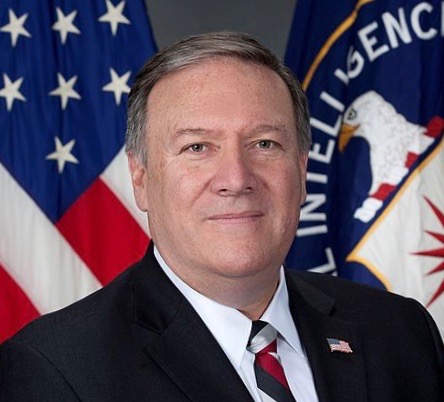Thought Leadership

The United States suspends its obligations under the INF Treaty
This statement by Guido Lanfranchi is delivered by our Diplomatic Council Partner Diplomat Magazine.
As announced by US Secretary of State Mike Pompeo and by President Donald Trump, the United State has decided to suspend its obligations under the INF Treaty, a bilateral US-Russia arms control agreement. Speaking to the press, Under Secretary of State Andrea Thompson explained the US administration’s decision and the way forward.
After the United States and Russia had failed to reach an agreement during a crucial round of negotiations in mid-January, there were few hopes that the Intermediate-Range Nuclear Force Treaty could be saved. Indeed, on February 1st US Secretary of State Mike Pompeo announced that the US would suspend its obligations under the treaty, and announced the plans to withdraw within six months.
Mr. Pompeo’s announcement was then followed by President Donald Trump’s words during his State of the Union Speech on February 1st, in which he openly called out Russia for its non-compliance with the treaty, and reiterated his willingness to withdraw from it.
The INF Treaty is an arms control treaty that dates back to 1988, when US President Ronald Reagan and Soviet leader Mikhail Gorbachev agreed to eliminate ground-launched nuclear and conventional missiles with intermediate or shorter range.
In the last decade, the US has grown increasingly critical of the Treaty, repeatedly condemning the Russian side of not respecting the agreed standards. While Russia recently attempted to alleviate US pressure by publicly displaying the SSC-8, one of the incriminated systems, U/S Thompson severely downplayed such efforts as insufficiently transparent, and condemned the continued lack of compliance from Russia.
As a result of this behavior – United States Under Secretary of State Andrea Thompsonexplained – the United States will suspend its obligations under the treaty, which means that for instance the Department of Defense will be allowed to undertake research and development efforts that were prohibited before. However – Ms. Thompson clarified – any further steps on the deployment of US military capabilities will be closely discussed with European and NATO allies.
While the suspension of obligations under the deal is surely a blow for US-Russian relations, U/S Thompson assured that windows of dialogue between the two countries will remain open. Moreover, other bilateral deals, such as the New START, and broader multilateral non-proliferation arrangements will continue to be active, as all parties, including Russia, have to date complied with the agreed standards.
The future of the INF Treaty remains unclear to date. During the State of the Union Speech, US President Trump left all doors open on the future of the treaty, with options ranging from the negotiation of a broader arms control treaty also involving other nations, to a leap forward by the US in developing new military capabilities. As U/S Thompson said, “dialogue remains an important piece, and diplomacy is key and essential to that.”
Citizens from the US, Russia and the whole world hope that diplomacy will be able to deliver a solution that can ensure peace and security across the globe.
